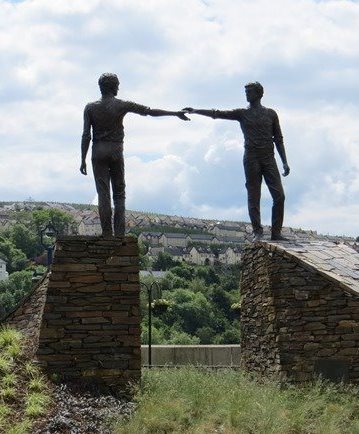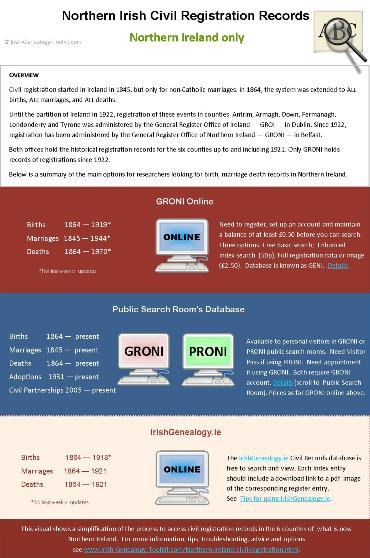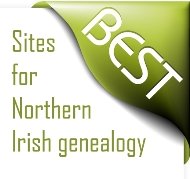- Home ›
- Civil Registration, overview ›
- NI civil registration
Northern Ireland civil registration records
On 31 March 2014, the General Register Office of Northern Ireland (GRONI) launched an online search and pay-to-view database for historical birth, marriage and death records.
It holds records of births, marriages and deaths registered in the six counties of Northern Ireland: Antrim, Armagh, LondonDerry, Down, Fermanagh, and Tyrone.
The records date back to the introduction of Ireland's civil registration system in April 1845 (for non-Catholic marriages only) and January 1864 (for births, deaths and Roman Catholic marriages).
The records survive intact and provide one of the most accurate collections of data on our Irish ancestors' lives.
If you already know the names, approximate dates and location of your ancestor's birth, marriage and death within the relevant timeframe, it should be relatively easy to obtain copies of the relevant registration record.
You need to make some allowances for the spelling of names, especially surnames, and bear in mind that in the earliest years, some births and deaths - particularly in the more rural areas - were not registered.
It holds records of births, marriages and deaths registered in the six counties of Northern Ireland: Antrim, Armagh, LondonDerry, Down, Fermanagh, and Tyrone.
The records date back to the introduction of Ireland's civil registration system in April 1845 (for non-Catholic marriages only) and January 1864 (for births, deaths and Roman Catholic marriages).
The records survive intact and provide one of the most accurate collections of data on our Irish ancestors' lives.
If you already know the names, approximate dates and location of your ancestor's birth, marriage and death within the relevant timeframe, it should be relatively easy to obtain copies of the relevant registration record.
Historical background
As stated above, the civil registration system dates back to 1845/1864.
It was introduced across the entire island of Ireland at a time when Ireland was part of Britain. Life events were registered locally, collated regionally, and sent to the General Register Office in Dublin where they were indexed.
 Hands Across The Divide, Derry City
Hands Across The Divide, Derry CityFollowing the partition of Ireland in 1922, a new General Register Office was set up in Belfast to administer a Northern Ireland civil registration system covering just the six counties. It's official name is the General Register Office of Northern Ireland, and it is widely referred to as "GRONI".
While the General Register Office (GRO) in Dublin retained the historical civil registration records for the six counties, a complete set of copies was sent to Belfast.
The result is that the, while births, marriages and deaths occurring in Northern Ireland from 1 January 1922 are held only by Northern Ireland, researchers have a choice of where they source the historical (pre-1922) records.
 Hands Across The Divide - Derry City
Hands Across The Divide - Derry CityFollowing the partition of Ireland in 1922, a new General Register Office was set up in Belfast to administer a Northern Ireland civil registration system covering just the six counties. It's official name is the General Register Office of Northern Ireland, and is widely referred to as GRONI.
While the General Register Office (GRO) in Dublin retained the historical civil registration records for the six counties, a complete set of copies was sent to Belfast.
The result is that the, while births, marriages and deaths occurring in Northern Ireland from 1 January 1922 are held only by Northern Ireland, researchers now have a choice of where they source the historical (pre-1922) records.
In brief
Copies of the historical birth, marriage and death certificates from 1845/1864 to 1921 inclusive can be obtained from either GRONI in Belfast or the GRO in Dublin/Roscommon. Northern Ireland civil registration records from 1922 onwards are available only from GRONI.
How to access Northern Ireland civil registration records
You have three options:
- GRONI Online for the historical records database
- The Public Search Room's Database at GRONI or PRONI for historical AND current records
- For records up to 1921 only, the online and offline search facilities used in the Republic.
1. GRONI Online: This historical records database is available on the internet. Some basic records are free. Two other options - 'enhanced transcript' or an on-screen image of the register entry - are pay-to-view. Free or not, you need to register for an account and have at least 50p credit to search the database.
Legislation dictates that the term 'historical records' is a rolling concept, as follows:
Births – from 1864 to 100 years ago (ie 1920 in 2020 etc)
Marriages – from 1845 (1864 for RC marriages) to 75 years ago (ie 1945 in 2020)
Deaths – from 1864 to 50 years ago (ie 1970 in 2020 etc)
2. GRONI Search Room Database: Personal visitors only. This facility is not on the Internet and can be accessed only at GRONI's Public Search Room in Belfast (address below) OR on dedicated computer terminals at the Public Record Office of Northern Ireland (PRONI), also in Belfast.
Contact GRONI
General Register Office (GRONI)
NISRA
Colby House
Stranmillis Court
Belfast BT9 5RR, UK.
Telephone: 0300 2007 890 or (+44(0) 28 9151 3101 if you are calling from outside Northern Ireland).
Fees and the need to set up an account are the same whichever location you visit. Details. If visiting PRONI, you also need a Visitor's Pass.
There is no 'historical records' access restriction for personal visitors. This computerised system holds Northern Ireland civil registration records as follows:
Births – 1864 to date
Marriages – 1845 (1864 for RC events) to date
Deaths – 1864 to date
Adoptions – 1931 to date
Civil partnerships – 2005 to date
Contact GRONI
General Register Office (GRONI)
NISRA
Colby House
Stranmillis Court
Belfast BT9 5RR, UK.
Telephone: 0300 2007 890 or (+44(0) 28 9151 3101 if you are calling from outside Northern Ireland).
Fees and the need to set up an account are the same whichever location you visit. Details. If visiting PRONI, you also need a Visitor's Pass.
There is no 'historical records' access restriction for personal visitors. This computerised system holds Northern Ireland civil registration records as follows:
Births – 1864 to date
Marriages – 1845 (1864 for RC events) to date
Deaths – 1864 to date
Adoptions – 1931 to date
Civil partnerships – 2005 to date
3. GRO Ireland: Manual and online systems - both include Northern Ireland civil registration records up to 31 December 1921 only.
Indexes (plus images of register entries for most historical records except, at January 2020, Deaths 1864-1877) are free of charge at IrishGenealogy.ie.
Photocopies of register entries can be obtained by email or post from the GRO in Roscommon.
Personal visitors can manually search the index books and buy photocopies of of register entries for all years at the GRO Research Room in Dublin.
For more information, see the main Irish Civil Registration pages.


